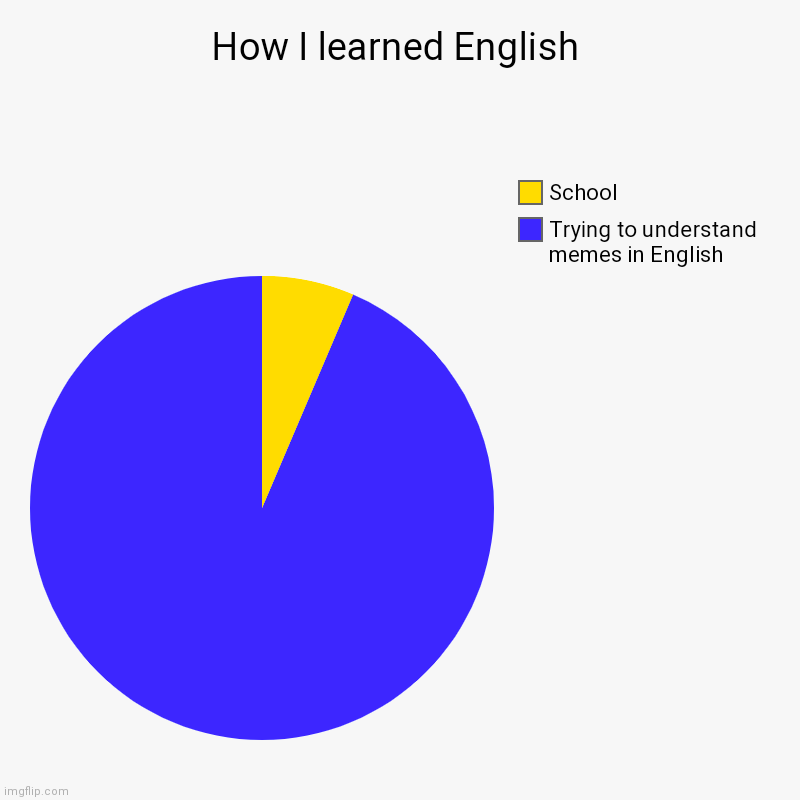Learn English as a Second Language Online: ESL English Language Learning
Great students need great content
Welcome, aspiring polyglot! Learning English as a second language is probably one of the most common phenomena in recent decades. Almost everyone is learning English as a second language from the time they begin school around the world. This is one of the more frustrating aspects of being American. The public education system in the United States is not incentivized to teach foreign languages because Americans can rely in large part on the English they learn as their native language.
While learning a foreign language is beneficial in and of itself, learning English has far more benefits for most people than learning Dutch, for example. That said, understanding how English is taught and learned is beneficial for those who are learning other languages. Sometimes seeing how others learn your native language opens your eyes to ways you can and should learn your target language. Not only that, but most of what works from pattern recognition to phonics work across languages and seeing more examples of how to implement never hurt anyone.
Pattern recognition and accents
Understanding where accents come from is important for second language acquisition. Not because having an accent is something to be ashamed of, but because it can explain why things are pronounced the way they are in your target language. This holds true for English language learners as well. If letter combinations always make a certain sound in your native language, you may find that you make the same sounds in your target language out of habit. Nailing down these habits is the only way to address them. You cannot fix something you do not know exists.
Aside from letter combinations, word combinations can also cause your accent to come through. The romance languages are a perfect example of this. Even though they all share a similar pattern with -tion/-sion words, they are pronounced differently. If you are using those words in conversation you may find that, while the rest of the words sound more or less perfect, you pronounce those with a French or Spanish or Italian accent.
Fortunately, in most cases you will still be understood, but it depends heavily on what combination of words you are using. This problem amplifies when you are undertaking an entirely new alphabet. Changing the sound associated to various letters is difficult and can only be done through consistent repetition and practice.
That said, one of the things you should be paying attention to when working on your English language learning is what people who speak your native language sound like when they speak English. What words do they struggle with? What letters give them the most problems? What may be the reasons for this disconnect?
When you find a pattern you can see across different situations you can begin to ameliorate your own accent using their struggles. It does help to have an idea of where to start, though, and the alphabet is always the best place to start. You cannot build something magnificent on a weak foundation; and your knowledge of the alphabet will be your foundation for everything else moving forward.
How can you use this information?
The best place to get started with English learning, as with any language, is the alphabet. While there are certainly things that are not entirely sensical, much of the English language does have a reason to it. A major failure of public education systems is the focus on the irregulars.
Yes, it is important to nail down irregulars, but spending all your time memorizing them is not going to get you as far as learning the patterns. When you see how often things do work, it makes them stand out even more when they do not work. This is true irrespective of your target language, but it is especially true for those who are learning English as a second language.
Mastering the alphabet does not mean simply knowing the sounds the words make. If you truly want to develop your English skills then it is vital that you understand how the letters interact with one another. Knowing what words correspond with which sounds is only half the battle.
Beyond that you need to understand how two or more letter might interact in a given word. This is why people think it is so difficult to learn English, but it does not have to be the reason you think it is difficult. Of all the tools you have at your hand to develop your ability to communicate in English, phonics is probably the one that will take you the furthest.
Phonics offer you a way to understand how different letters correspond to different sounds and in which scenarios. A few examples for English learners starting out that any quality educators will point you towards are these:
- ph - th - wh - ch - gh
- ou - ee - ea - oo - ai
- ough - kn - ate - ite - ote
While there are many more, this is a good starting point. Unlike most languages, there are no accent marks in English, that is why it is so important that you understand phonics. As much as many people pretend to ignore it, English language learning is heavily context dependent. Learning to understand English vocabulary and English grammar is going to heavily depend on how much you are willing to immerse yourself in it in different contexts.
Conclusion
English language learners have quite the challenge to tackle between impossible grammar rules and ample variations of pronunciation to learn, but if you can use the language you already know to ameliorate your English then it will not be anywhere near impossible. That said, the greater the understanding you have of your mother tongue the better your experience learning English will be.
Expanding your knowledge within your mother tongue is hugely beneficial in understanding the grammar and even many of the vocabulary that can be found within the English language. It is not necessary, but your language ability will likely be similar across languages.
Learning foreign languages is no easy feat, it will be difficult irrespective of how you approach it. Using the strategies and tools listed here can and will enhance and accelerate your language learning experience, it will not be easy. But you can do difficult things and be great, so continue to do difficult things and be great. I will be here by your side endeavoring to do the same.
Be sure to check out Second Language Strategies to catch up on anything you missed, find me on Twitter or Instagram for some short form content. For access to all the guides we have to offer, be sure to check out the "guides" section of the website. There is a mixture of free and paid guides that is constantly being updated with new content to enhance and accelerate your language acquisition. I look forward to seeing everyone’s progress in the months and years to come.





